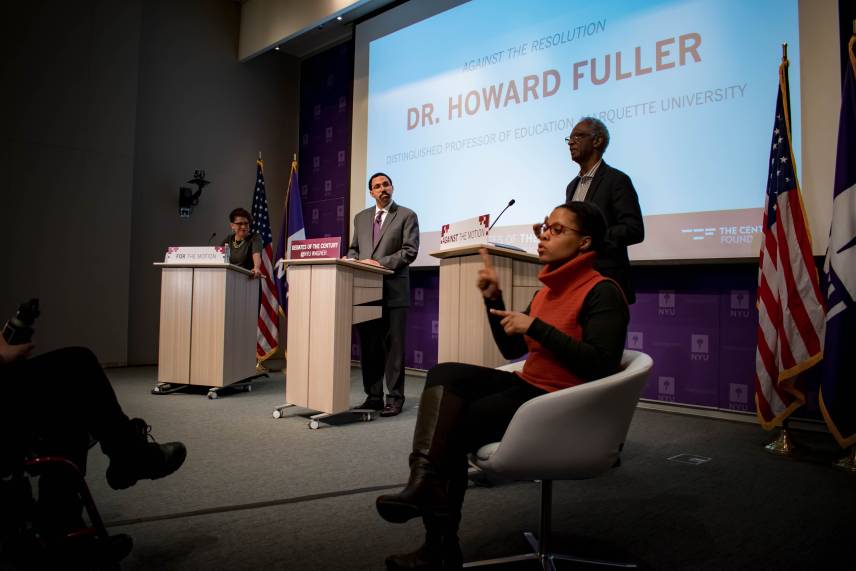"Debates of the Century" debaters go toe-to-toe on the issue of racially segregated schools
The eighth in the continuing “Debates of the Century” series sponsored jointly by The Century Foundation and NYU Wagner was framed around the proposition “One of the biggest threatens to education today is school segregation,” and featured Professor Sheryll Cashin of Georgetown University arguing in the affirmative, and Dr. Howard Fuller of Marquette University giving an opposing view.
Moderating the debate, at NYU Washington DC on Feb. 7, was John B. King Jr., former Secretary of Education in the Obama administration.
The debaters supplied both passion and light concerning the persistence of segregated schools and their place in the hierarchy of difficulties facing children of color living in poor communities.
“Equality, if we really mean it when we stand for that, requires integration and inclusion,” said Professor Cashin. “Segregation is deeply implicated in undermining equality,” stacking the odds against children of color, and contributing to a racist worldview among white children as they grow up. It is "one of the things that really harms all children," she contended.
Dr. Fuller emphasized that he opposes state-sponsored segregation, in all of its forms. But mixing white and black children in schools is not a prerequisite for ending gross inequality of opportunity, though it can be one of many strategies for social change.
“For the families of the disinherited, the biggest immediate threats to their [children’s] education is not segregation," he said. "It is the lack of interest and commitment to their overall well-being, including education, by the body politic writ large in this country. I am suggesting that policies and circumstances which limit their families access to health care, decent housing, well-paying jobs, or place certain people under the threat of deportation at any moment—these things pose a greater threat to their lives than ‘segregated schools.’"
The rousing discussion saw many members of the audience changing sides from the opening to the closing poll—ending with a tie over whether school segregation poses one of the greatest threats to education today.
